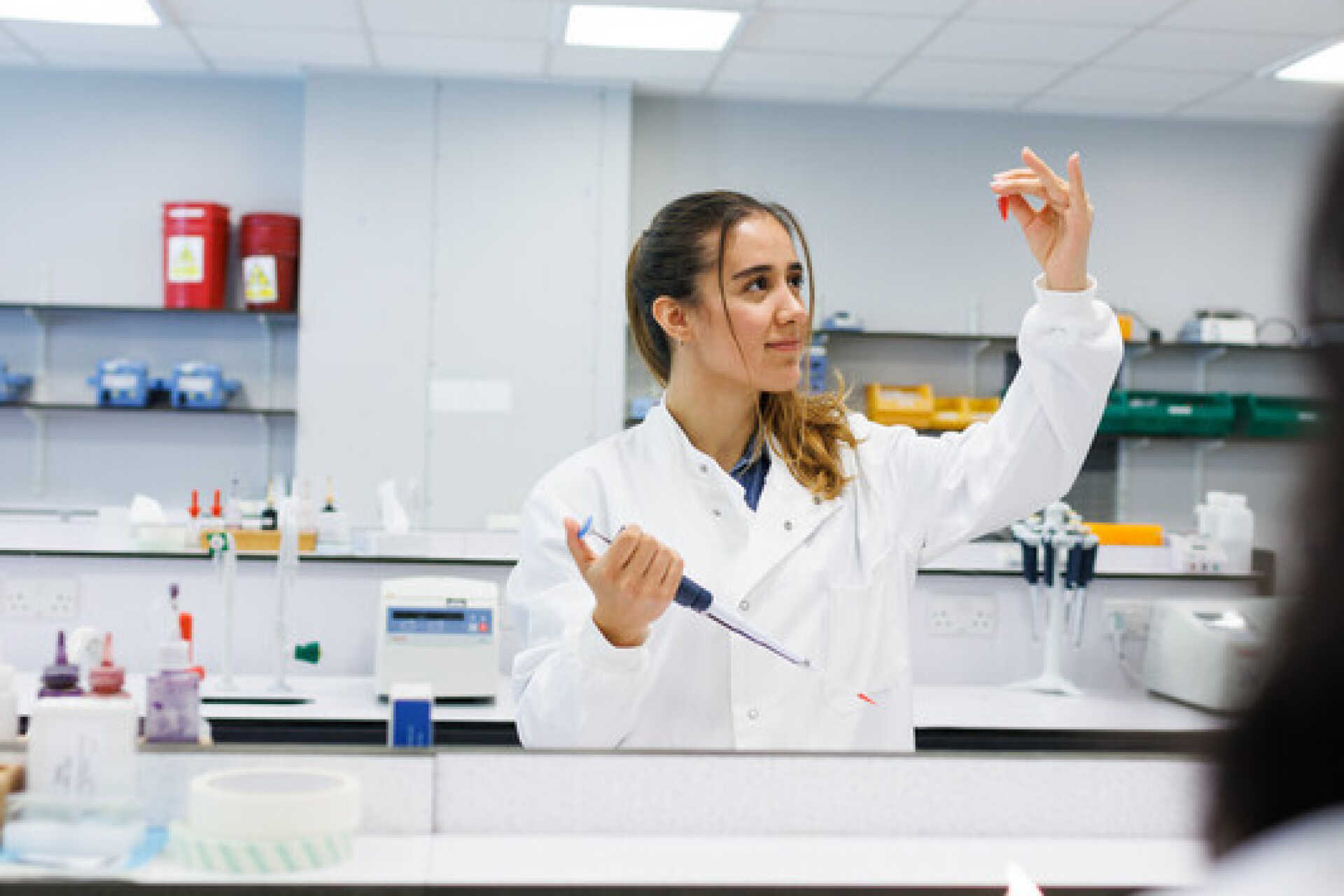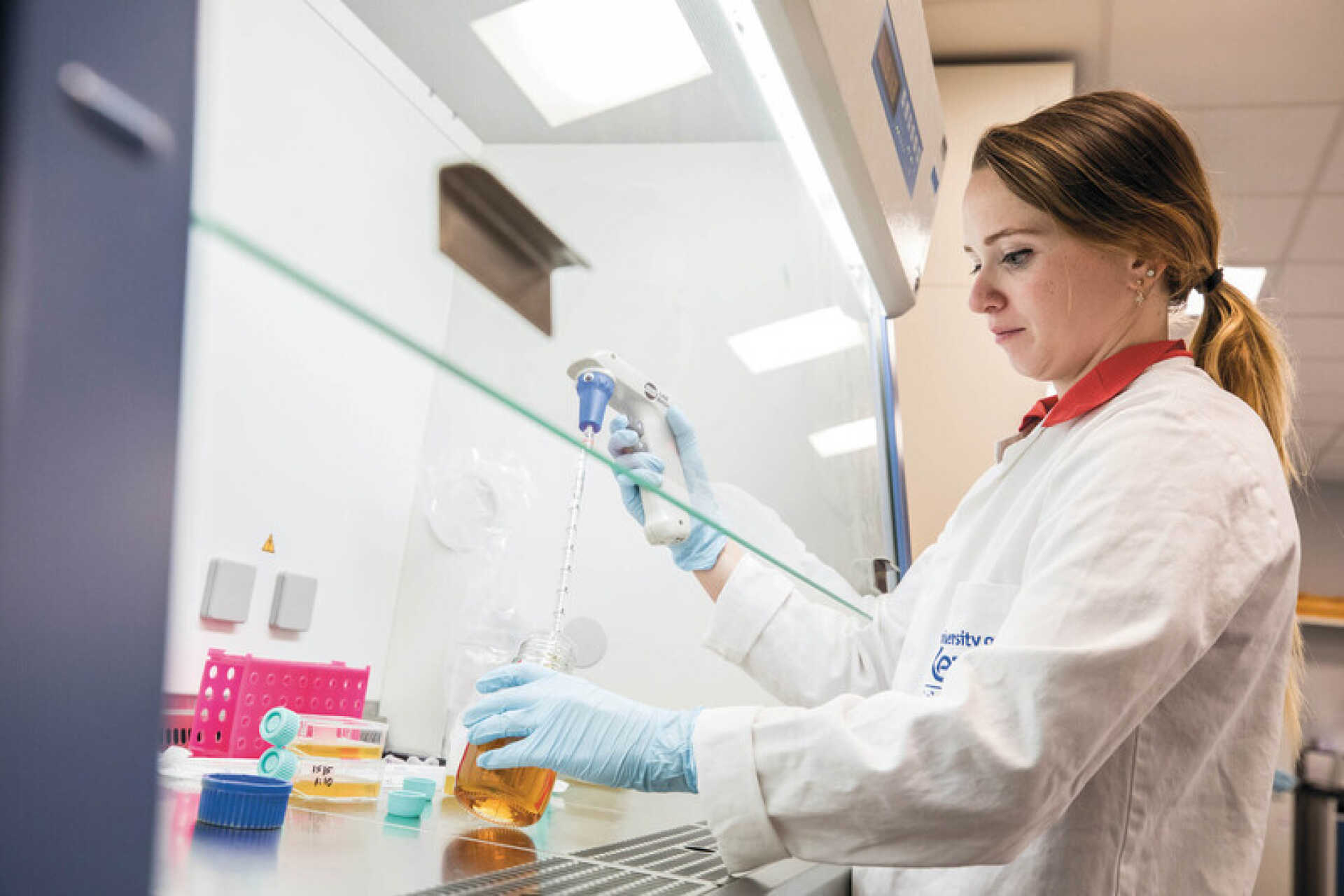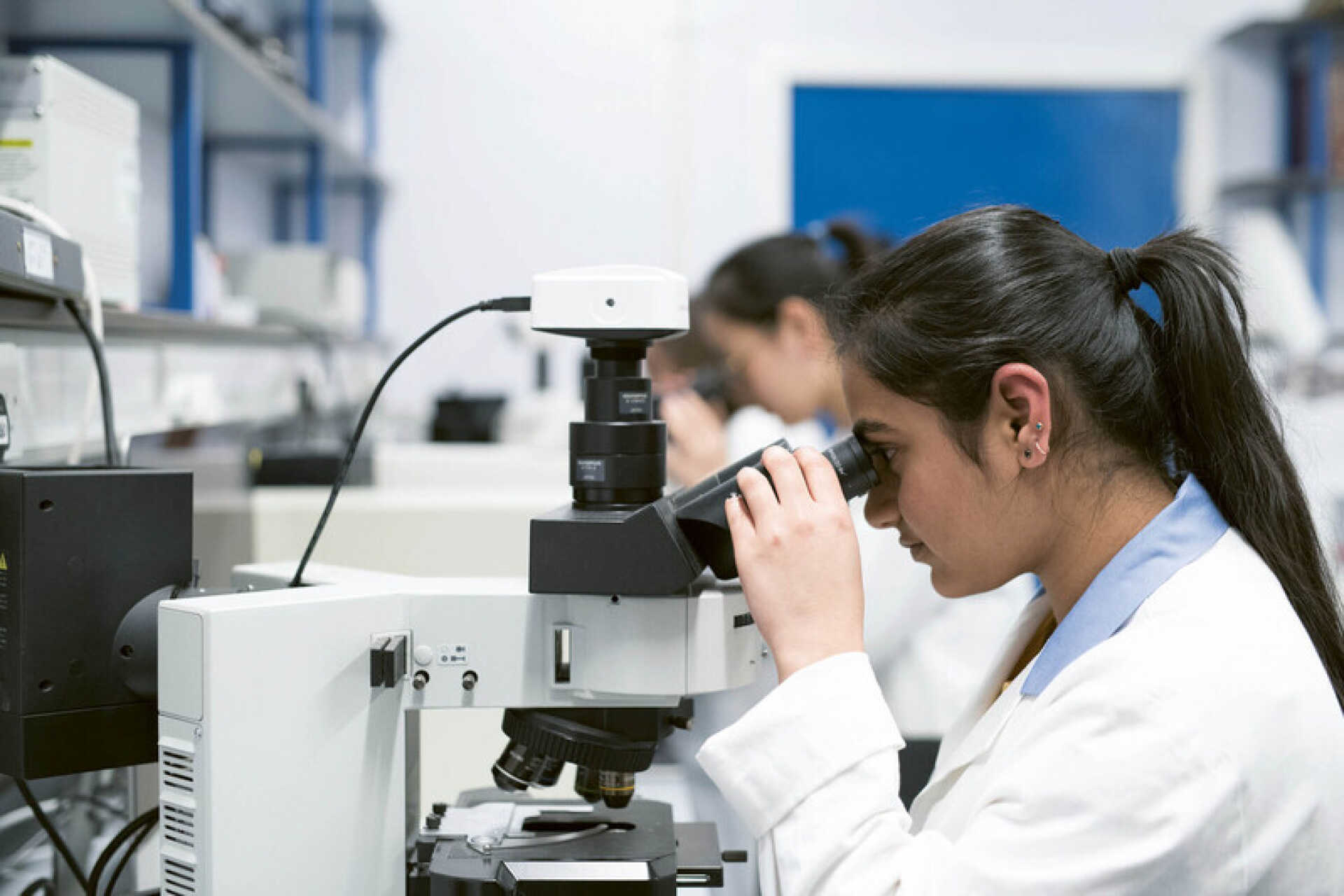What can I do with a degree in Biomedical Science?

A degree in Biomedical Science from the University of Kent gives you practical lab skills, scientific knowledge, and an understanding of how the human body works in health and disease. You'll learn about areas like microbiology, genetics, and disease diagnosis. These skills can lead to careers in healthcare, research, laboratories, and beyond. Get ideas and inspiration here before booking a one-to-one appointment with a Careers Adviser.
Careers in Biomedical Science
The following roles show some of the career options available to Biomedical Science graduates, using their scientific knowledge, lab skills, and problem-solving abilities.
Biomedical Scientist- Perform laboratory tests on patient samples to aid diagnosis and treatment (requires HCPC registration).
Clinical Scientist (NHS) - Work in specialist areas like haematology, microbiology, or immunology via the Scientist Training Programme (STP).
Medical laboratory assistant/Laboratory technician- Support medical research or clinical trials in universities, hospitals, or biotech firms.
Research scientist- Plan and conduct experiments to advance medical knowledge.
Bioinformatics Scientist-Analyse biological data to support research and development.
Alternative career paths
Science writer/Science Communication-Explain complex scientific content tailored for public, medical, or regulatory audiences.
Regulatory Affairs Officer-Ensure pharmaceutical and medical products comply with regulations.
Public Health Analyst-Use biomedical knowledge to inform health policy or epidemiological studies.
Medical Sales-Scientific product representatives for lab equipment and assays.
Community Education Officer- Predominantly related to secondary science or STEM education, increasing widening participation and access for disadvantaged communities.
Secondary School Teacher/Lecturer- Teaching science to students age 11-18 or at university and preparing them for their future.
Where do University of Kent graduates work?
This is a selection of organisations that have employed University of Kent graduates in the past. There are many more possible employers in these and other industries.
- Clinical & NHS Employers: Kent & Canterbury Hospital, NHS Trusts, private pathology labs
- Research & Pharma: GSK, AstraZeneca, Pfizer
- Diagnostics & Testing: Eurofins, Nuffield Health, Biotech start-ups
- Higher Education & Education: University labs, PGCE training routes, secondary schools
- Health Policy & Public Sector: Public Health England, local government health roles

Find a job
The Careers and Employability Service provides information and advice on job searching to University of Kent students and recent graduates. This includes Uni Kent Careers Hub, advertising a range of graduate jobs, placement year and vacation work/internships.
Biomedical Science recruitment platforms
IBMS Jobs Board UK biomedical jobs
Royal Society of Biology Jobs Sector-specific vacancies
NHS Careers Clinical Scientist, Biomedical Scientist roles
Health Careers (HCPC roles) Biomedical Scientist, STP routes
New Scientist Pharma, biotech, and life sciences
Jobs.ac.uk Academic and lab-based roles
Science Careers (AAAS) Global research jobs
Tips to stand out
- Gain HCPC registration: You’ll need this to practise as a Biomedical Scientist in the UK. Complete an IBMS-accredited degree plus a portfolio with a lab placement.
- Get a year in industry: A professional placement year in a clinical or research setting greatly enhances your employment prospects.
- Showcase lab expertise: Highlight clinical techniques like histology, microbiology, haematology, PCR, and ELISA in your CV and interviews.
- Stay informed: Follow biomedical journals or NHS innovations to demonstrate sector awareness in interviews.
- Leverage your network: Use LinkedIn and Kent’s Career Mentoring scheme to build connections with alumni and professionals to gain insights into your target roles and industries.
- Develop science communication: Present at conferences, write blog posts, or engage in outreach.
- Undertake extra-curricular activities: Become part of BioSoc at Kent to demonstrate commitment, gain new skills and build your network.

Year in industry
A year in industry can have a big impact on your employability. By gaining real-world experience and learning key skills in the workplace, and pairing these with the knowledge you gain on your degree, you can become a highly employable candidate in the labour market. The year can be based in the UK or abroad, including your home country if you're an international student, and contribute to your final degree. At The University of Kent, many courses include an optional year in industry between your second and final year, where you undertake graduate-level work related to your studies.
Further study
Some graduates go on to further training or specialise in a biomedical field:
- MSc Biomedical Science: For deeper specialisation and lab-based roles
- Scientist Training Programme (STP): NHS Clinical Scientist career path
- Postgraduate Certificates/Diplomas e.g., Histopathology, Infection Control
- Graduate Entry Medicine/Dentistry/Physician Associate
- PGCE Science (Secondary): For students interested in teaching careers